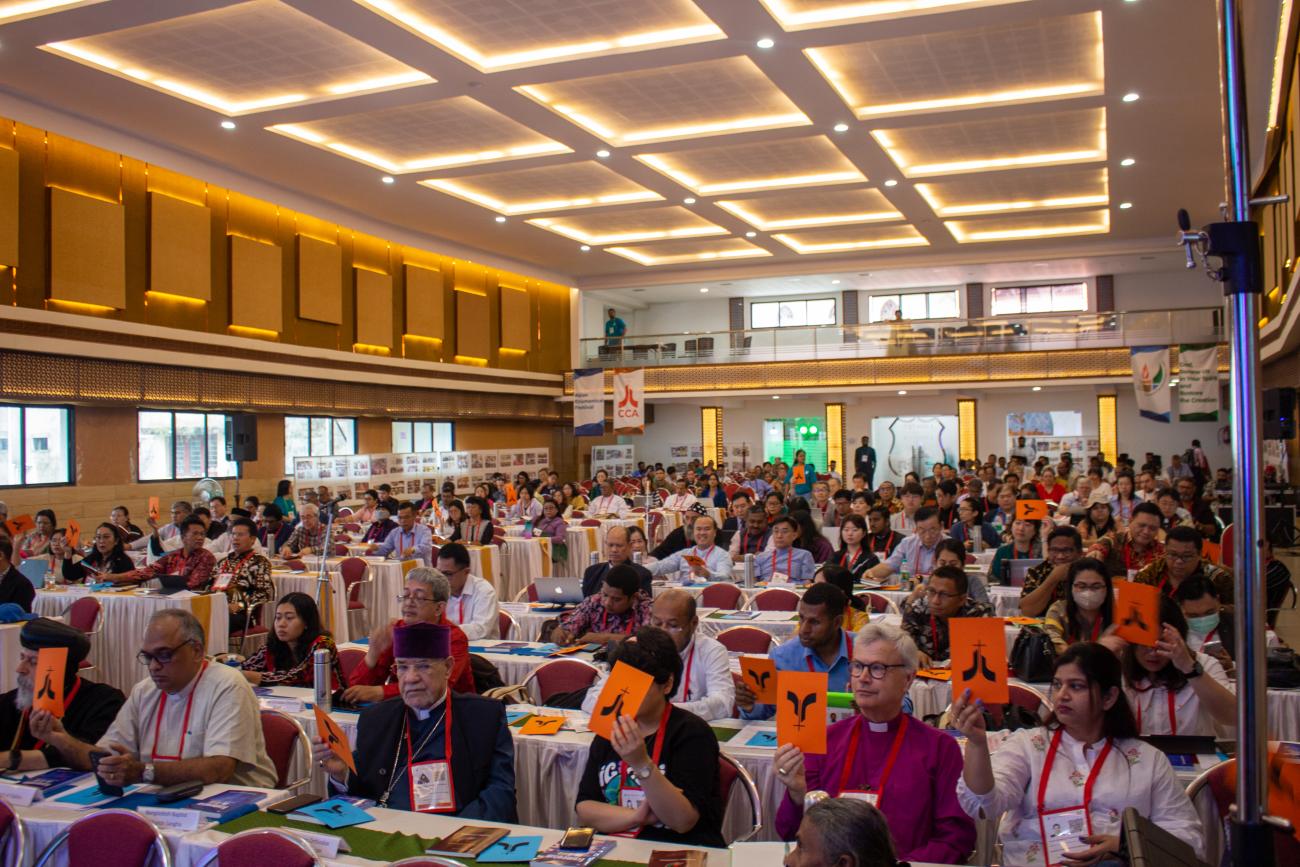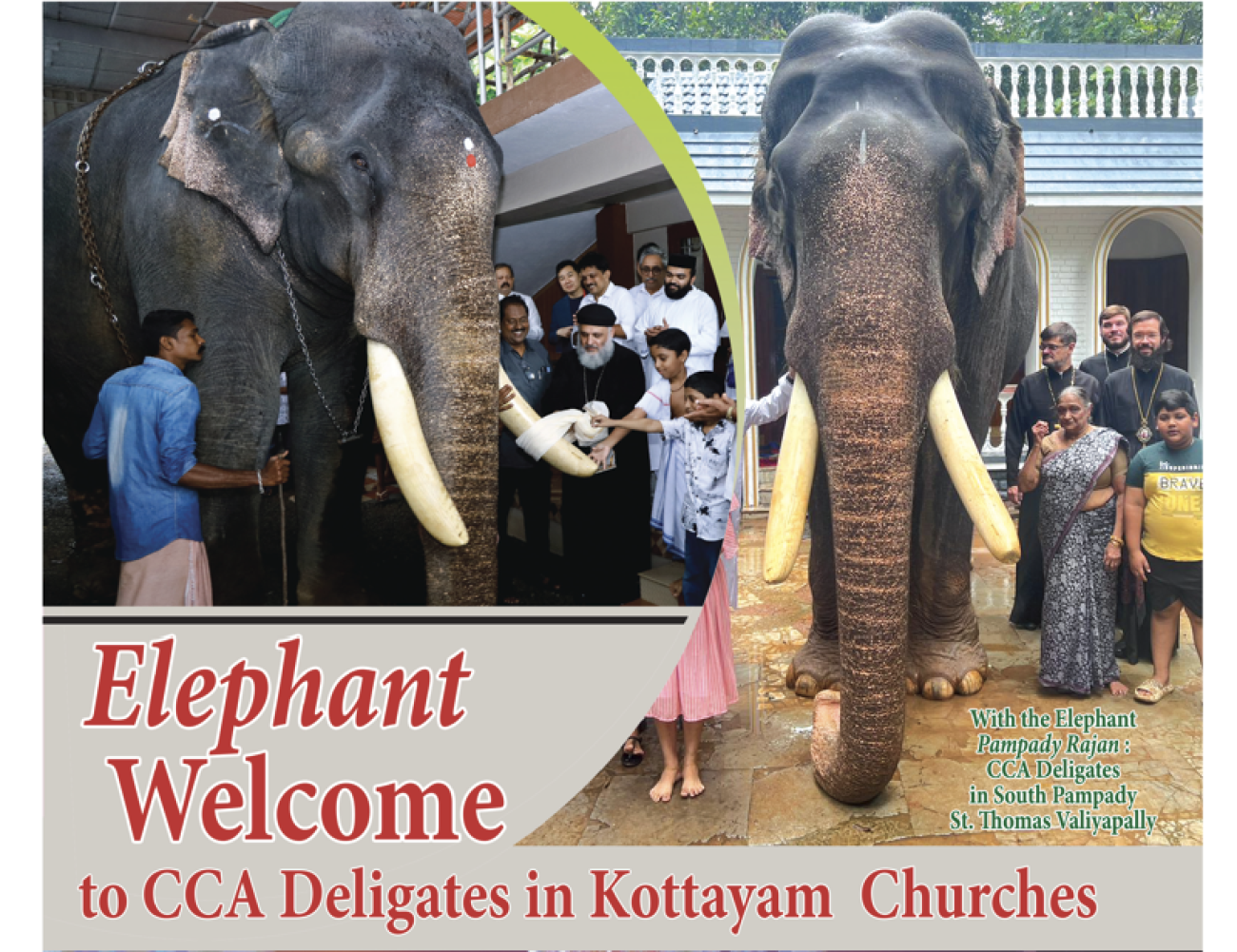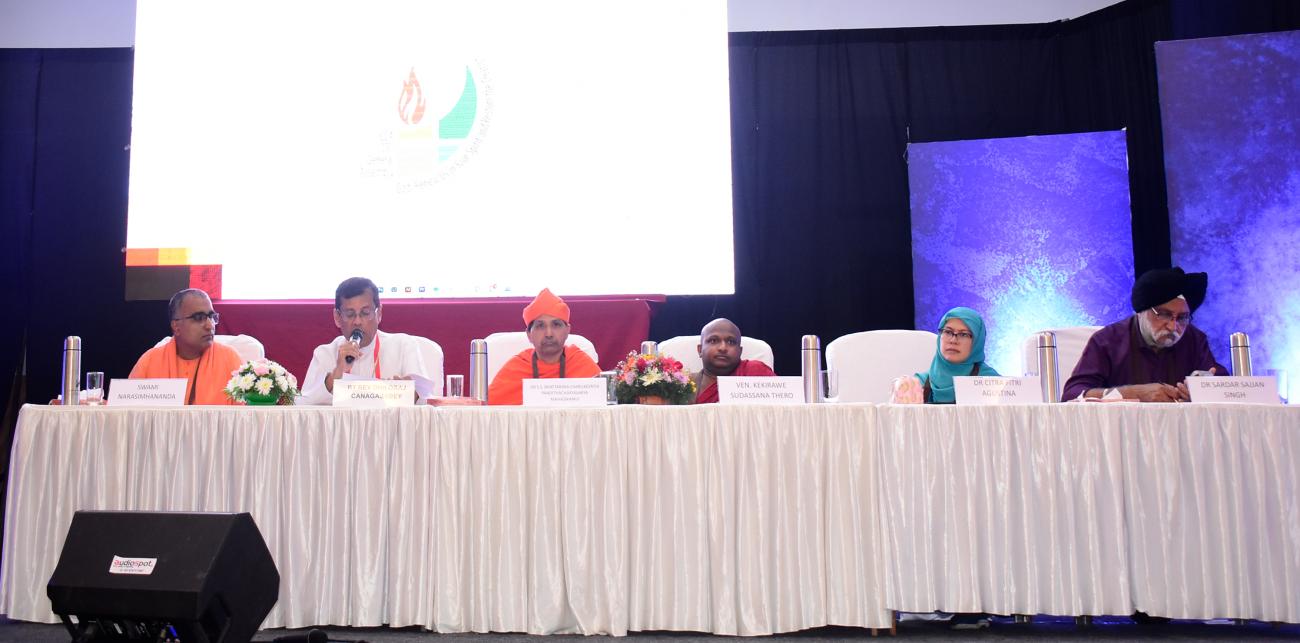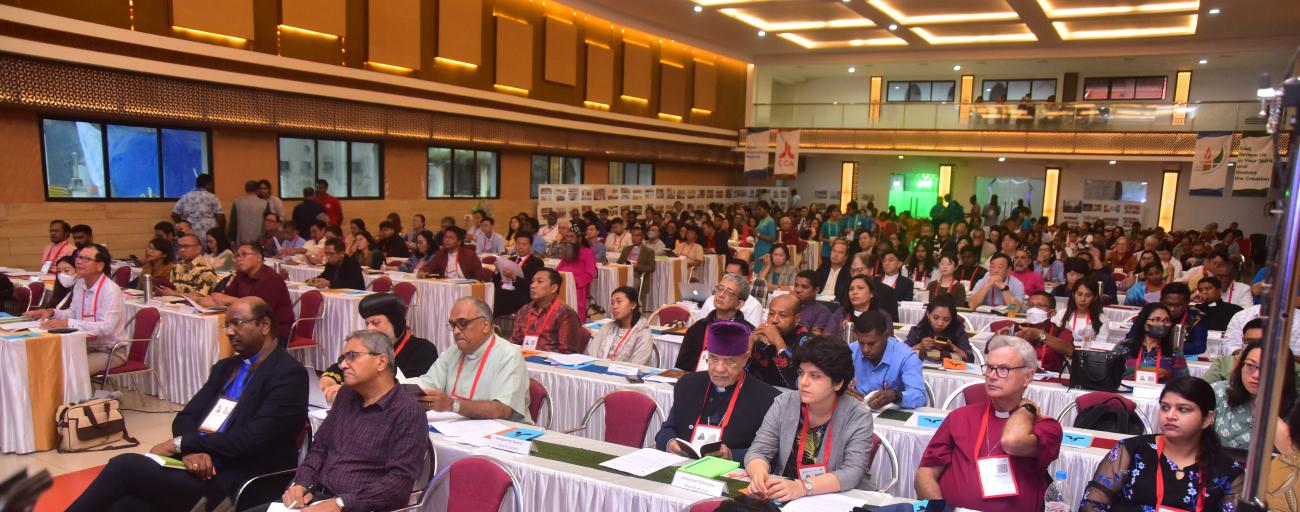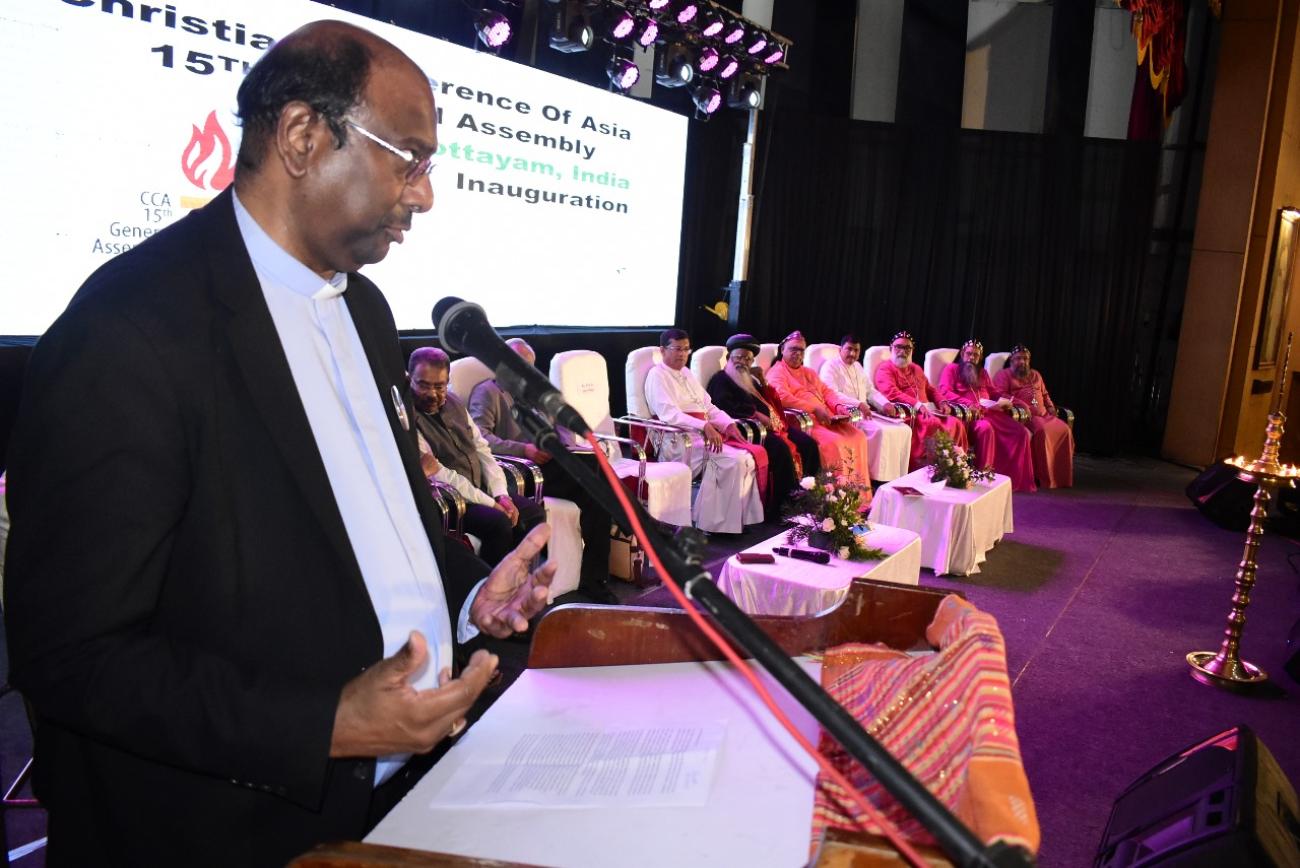CCA Executive Committee attends seminar on ecological and sustainable development issues in South Asia
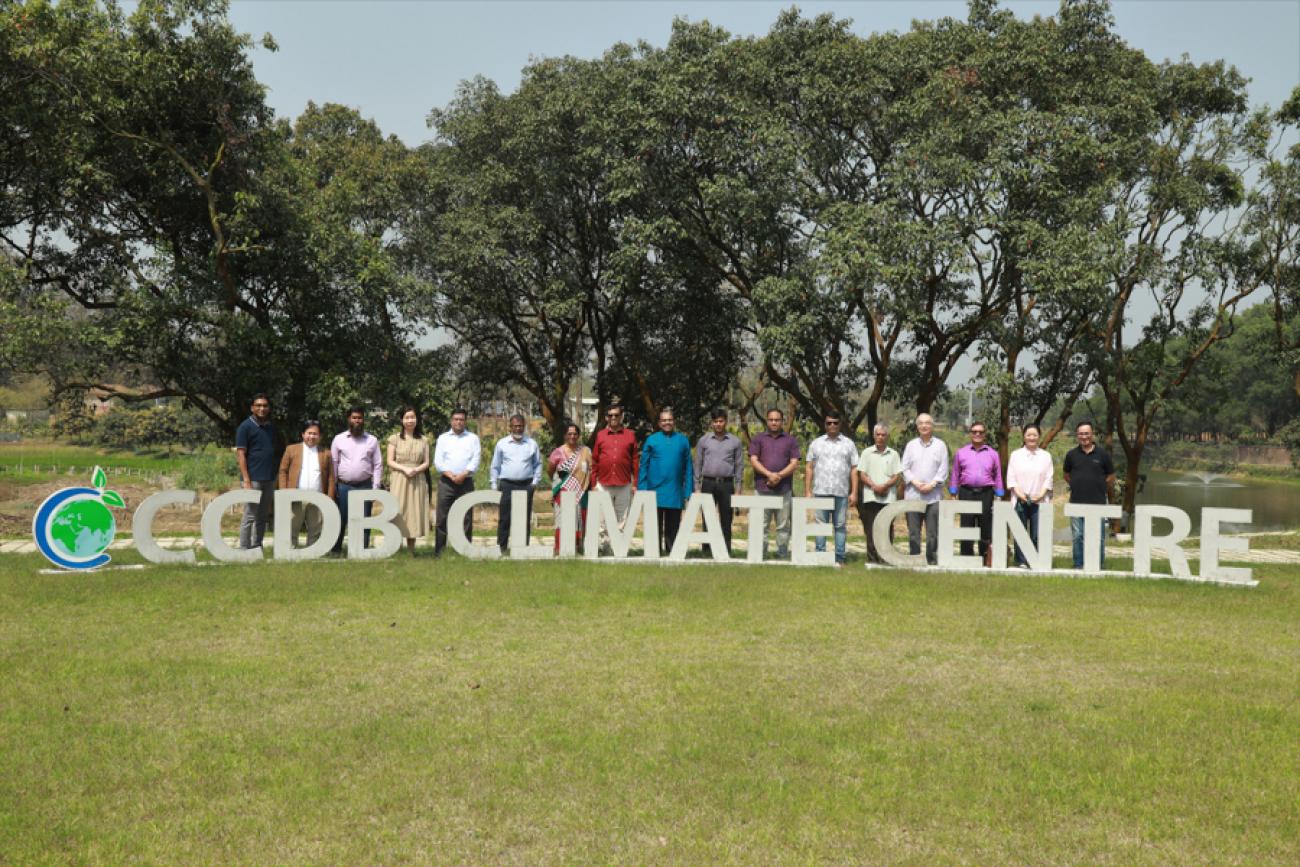
Ecological and Sustainable Development Issues in South Asia Dhaka, Bangladesh–2023
Dhaka, Bangladesh: The Executive Committee of the Christian Conference of Asia (CCA) participated in a day-long seminar on ‘Ecological and Sustainable Development Issues in South Asia’ which was organised by the Climate Centre of the Christian Commission for Development in Bangladesh (CCDB) on 6 March 2023. The seminar formed part of the reflections undertaken by the CCA Executive Committee on the theme of the forthcoming 15th CCA General Assembly, ‘God, Renew Us in Your Spirit and Restore the Creation’.
The seminar analysed ecological and environmental crises constantly affecting South Asian countries, such as cyclones, droughts, lightning, landslides, glacier melting, sea-level rise, salinity intrusion, land degradation, acute water scarcity, biodiversity loss and deforestation, desertification, degradation of river and marine resources.
According to the Global Climate Index, six out of ten climate risk-affected countries in the world are in Asia: Bangladesh, Pakistan, Myanmar, Thailand, Nepal, and the Philippines.
Md. Foezullah Talukder, Director of the Climate Change Programme at the CCDB Climate Centre, illustrated the most dangerous climatic events in South Asia.
Cyclones were the most destructive in low-lying coastal regions of Bangladesh and India. South Asian countries were also most vulnerable in terms of extreme flooding. In 2005, the western Indian city of Mumbai faced severe floods that led to a loss of 1000 lives and damage of 250 million US dollars. One-third of the entire country of Pakistan was inundated by the 2022 floods, in which 15,000 people died or were injured, and eight million people were forcibly displaced. The Sylhet region of Bangladesh was also totally devastated by a flood in 2022.
Mr Talukder further asserted the prediction of a significant acceleration of warming, increasing frequency of heat waves, heavy precipitation, and an increase in the intensity of storms with a rise in sea surface temperatures. He shared data such as the projected increase of 10–20 percent in the intensity of storms, an increase of 2–4 percent in sea surface temperature, and a decrease of 10–30 percent in annual average river run-off and water availability.
Climate change was also inducing losses of annual GDP in South Asian countries. A recent study by Asian Development Bank estimated an annual GDP loss of two percent in Bangladesh by 2050. The Intergovernmental Panel on Climate Change projected a 15 percent net increase in poverty by 2030 in Bangladesh due to climate change.
Juliate Malakar, the Executive Director of the CCDB, explained the objectives and vision of the CCDB Climate Centre and said, “The innovative climate programmes of the Centre aim at strengthening climate-resilient and low-carbon sustainable development to mainstream transformative community-based adaptation and climate risk reduction through accelerated innovation, capacity development, and knowledge dissemination.”
CCA General Secretary Dr Mathews George Chunakara stated that the Asian churches would be encouraged to learn from the CCDB Climate Centre about innovative methodologies and strategies to combat the ever-increasing ecological and environmental crises.
As the theme of the forthcoming CCA General Assembly would be focused on the multitude of issues related to the sustainability of creation, there will be special sessions at the CCA Assembly to address these concerns, which will aim at sensitizing the Asian churches and developing their capacity for building climate-resilient communities and low-carbon forms of development, as well as climate change adaptation and mitigation in their respective local contexts, added the CCA General Secretary.


